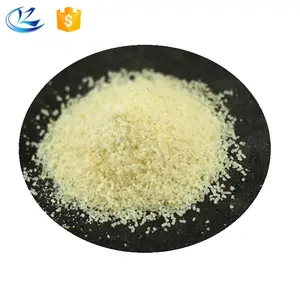Popular in your industry











































































































































































































































Top categories
About agar powder
The term agar powder refers to a versatile gelling agent extracted from seaweed, commonly used in various culinary and scientific applications. Agar agar powder is renowned for its ability to form gels at low concentrations, making it a preferred choice in the food industry, particularly as a vegetable gelatin powder. It is a natural product that serves as a stabilizer, thickener, and emulsifier in both edible and non-edible products.
Types and Grades of Agar Powder
Agar agar food grade powder is available in a spectrum of types, each designed for specific uses. The serbuk agar agar, popular in Southeast Asia, is known for its robust gelling strength, suitable for traditional desserts that require a firmer set. The agur agur powder is preferred for its finer granules, which dissolve quickly and are ideal for delicate culinary applications. Beyond culinary uses, technical grade agar is utilized in non-food industries for its gelling properties, while pharmaceutical grade agar is essential for medical applications due to its high purity. Each grade is a testament to agar's versatility and its ability to meet specific industry standards.
Structure and Features of Agar Powder
Agar powder's unique structure is composed of two polysaccharides: agarose and agaropectin. Agarose gives agar its firm gelling property, while agaropectin contributes to the viscosity and the overall stability of the gel. This combination allows for a stable gel that does not require the presence of other agents to set. The gel strength can be manipulated by adjusting the concentration of the agar powder, which is crucial for industries that require gels of varying firmness.
Materials and Properties of Agar Powder
Extracted from red algae, the polysaccharides in agar powder are chosen for their unique ability to form gels at relatively low temperatures and maintain stability at high temperatures. This thermal reversibility is a key property, allowing agar to be melted and reformed multiple times without significant degradation. The inert nature of agar means it has no taste, odor, or color, which makes it an ideal ingredient in industries where product purity is paramount.
Business Usages and Applications
In the food industry, agar agar powder is used to create a variety of textures, from soft jellies to firm molds. Its application extends to dairy products as a thickener and in confectionery for gummy candies. In the microbiological field, agar is indispensable as a culture medium, providing a neutral platform for cell growth. In the pharmaceutical industry, it is used as a laxative and as a disintegrant in tablets. The use of agar in these applications underscores its value in enhancing product quality and production efficiency.
Functions of Agar Powder
The primary function of agar agar powder is its gelling ability, which is leveraged in various industries. In the culinary world, it enables the creation of vegan and vegetarian-friendly dishes, acting as a plant-based gelatin substitute. In scientific research, it provides a solid medium for bacterial and fungal cultures, essential for experiments and studies. Additionally, its high melting point compared to gelatin makes it a preferred choice in food preparations that are exposed to higher temperatures.
Features of Agar Powder
Agar powder is distinguished by its high gel strength, which allows it to set even at low concentrations. This efficiency is a significant advantage over other gelling agents, which often require larger amounts to achieve similar results. Agar's gels are thermo-reversible, meaning they can be melted back to liquid form and re-set upon cooling, which is beneficial for culinary adjustments and scientific experiments that require precise temperature control.
Benefits of Agar Powder
The benefits of agar agar powder are manifold. It caters to a wide range of dietary preferences, being a plant-based, allergen-free alternative to animal-derived gelatin. In the food industry, its ability to create clear, tasteless gels makes it ideal for both sweet and savory dishes. For businesses, the efficiency of agar translates to cost savings, as less product is needed to achieve the desired gelling effect, reducing the overall expense in large-scale manufacturing.
How to Choose the Right Agar Powder?
Choosing the correct agar agar powder involves understanding the specific needs of the application. For culinary uses, the clarity, texture, and setting temperature of the gel are important considerations. In scientific applications, the purity and absence of inhibitors are critical. The agar agar powder price is also a factor, with higher-purity products generally being more expensive but necessary for certain applications.
How to Use Agar Powder in Recipes?
Utilizing agar agar powder in recipes requires precision. It should be measured accurately and mixed with the correct amount of liquid before being brought to a boil to ensure complete dissolution. The concentration of agar powder determines the firmness of the gel, which can be adjusted according to the desired outcome. It is also important to consider the interaction of agar with other ingredients, as certain fruits and enzymes can affect its gelling ability.
How to Maintain the Quality of Agar Powder?
To maintain the quality of agar powder, it should be stored in an environment free from humidity and extreme temperatures. Proper storage will prevent the agar from clumping and losing its gelling power. For businesses that use agar in bulk, maintaining its quality is essential to ensure consistency in product performance and to uphold the integrity of the end product, whether it be in food production or scientific research.




























